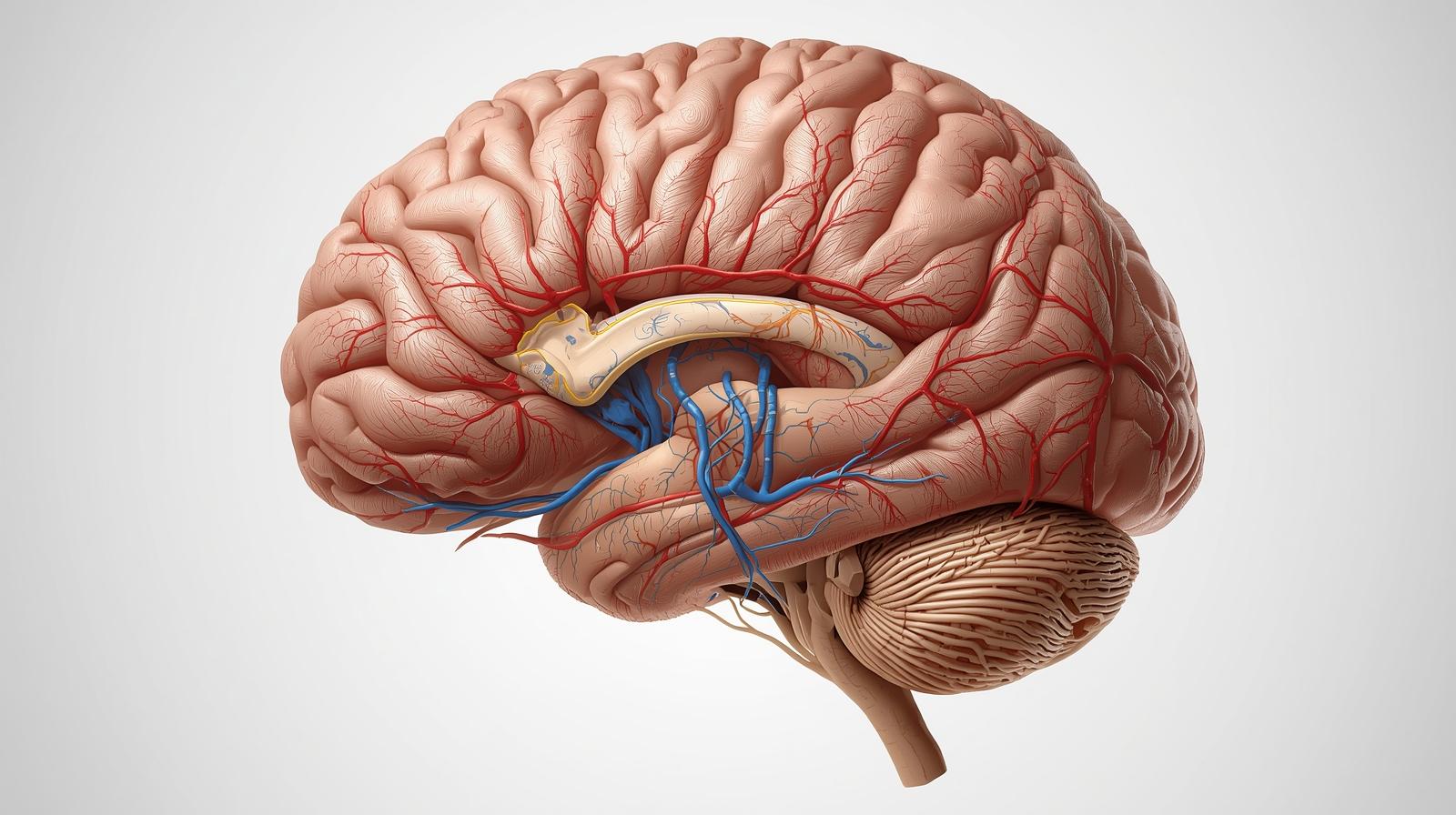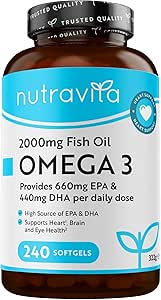Omega 3 - The Essential Guide
Welcome to our comprehensive guide on omega-3 fatty acids! In this post, we'll explore the numerous health benefits of these essential nutrients, identify the best dietary sources, and discuss the symptoms of omega-3 deficiency. Whether you're a health enthusiast or simply looking to improve your wellbeing, this guide will provide you with valuable information to make informed decisions about your diet and lifestyle.
Health and Wellbeing Benefits of Omega-3s
Omega-3 fatty acids are a group of essential polyunsaturated fatty acids that play a crucial role in various bodily functions. They are considered essential because our bodies cannot produce them on their own, so we must obtain them through diet or supplementation. The three main types of omega-3s are:
- ALA (alpha-linolenic acid): Primarily found in plant-based foods.
- EPA (eicosapentaenoic acid): Mainly found in marine sources.
- DHA (docosahexaenoic acid): Also primarily found in marine sources.
While ALA can be converted into EPA and DHA in the body, the conversion rate is often limited. Therefore, it's important to consume EPA and DHA directly from food or supplements to reap the maximum benefits.
Let's delve into the specific health and wellbeing benefits of these vital nutrients:
1. Heart Health
Omega-3s are renowned for their positive impact on cardiovascular health. They contribute to:
- Lowering Triglycerides: High levels of triglycerides, a type of fat in the blood, can increase the risk of heart disease. Omega-3s can help reduce triglyceride levels.
- Reducing Blood Pressure: Omega-3s can have a mild blood-pressure-lowering effect, which is beneficial for individuals with hypertension.
- Reducing Risk of Atherosclerosis: By reducing inflammation and plaque buildup in the arteries, omega-3s can help prevent atherosclerosis, a major cause of heart attacks and strokes.
- Improving Cholesterol Levels: Omega-3s can help increase HDL (good) cholesterol levels.
2. Brain Health
DHA is a major structural component of the brain, making omega-3s vital for cognitive function and brain health throughout life. Benefits include:
- Improved Cognitive Function: Omega-3s have been linked to improved memory, focus, and overall cognitive performance.
- Reduced Risk of Cognitive Decline: Studies suggest that adequate omega-3 intake may help protect against age-related cognitive decline and dementia, including Alzheimer's disease.
- Mental Health: Omega-3s may play a role in managing symptoms of depression, anxiety, and other mental health conditions.
3. Eye Health
DHA is also a major structural component of the retina, making omega-3s essential for maintaining good vision. Benefits include:
- Reduced Risk of Macular Degeneration: Omega-3s may help protect against age-related macular degeneration (AMD), a leading cause of vision loss.
- Dry Eye Relief: Omega-3s can help improve tear production and reduce symptoms of dry eye syndrome.
4. Anti-Inflammatory Properties
Omega-3s have potent anti-inflammatory effects, which can benefit a wide range of conditions. Chronic inflammation is linked to many diseases, including heart disease, arthritis, and cancer. Omega-3s can help reduce inflammation by:
- Reducing Inflammatory Markers: Omega-3s can decrease the production of inflammatory molecules like cytokines and eicosanoids.
- Alleviating Joint Pain: Studies have shown that omega-3s can help reduce joint pain and stiffness in people with arthritis.
5. Pregnancy and Infant Development
Omega-3s, particularly DHA, are crucial for the healthy development of the brain and eyes in infants. Benefits during pregnancy and infancy include:
- Brain Development: DHA is essential for the growth and development of the fetal brain.
- Eye Development: DHA contributes to the development of the retina.
- Reduced Risk of Premature Birth: Some studies suggest that adequate omega-3 intake during pregnancy may reduce the risk of premature birth.
- Improved Birth Weight: Omega-3s may contribute to a healthy birth weight.

The Best Dietary Sources of Omega-3s
Now that we've explored the remarkable health benefits of omega-3s, let's discuss the best dietary sources to ensure you're getting enough of these essential nutrients.
1. Fatty Fish
Fatty fish are excellent sources of EPA and DHA. Some of the best options include:
- Salmon: Wild-caught salmon is particularly rich in omega-3s.
- Mackerel: A small, oily fish that's packed with nutrients.
- Sardines: Small, whole fish that are a great source of omega-3s and calcium.
- Trout: Another good source of omega-3s, especially rainbow trout.
- Herring: A popular fish in many cultures, rich in omega-3s.
2. Plant-Based Sources
While plant-based sources primarily contain ALA, they can still contribute to your overall omega-3 intake. Good options include:
- Flaxseeds: One of the richest plant-based sources of ALA. They can be ground and added to smoothies, oatmeal, or baked goods.
- Chia Seeds: Another excellent source of ALA. They can be added to yogurt, salads, or used as an egg substitute in baking.
- Walnuts: A good source of ALA and other beneficial nutrients. Enjoy them as a snack or add them to salads and other dishes.
- Hemp Seeds: A complete protein source that also contains ALA. They can be added to smoothies, salads, or used as a topping for various dishes.
- Soybeans: Contain ALA and can be consumed in various forms, such as edamame, tofu, and tempeh.
3. Fortified Foods
Some foods are fortified with omega-3s to increase their nutritional value. Check the labels of these products:
- Eggs: Some eggs are enriched with omega-3s.
- Milk: Some milk products are fortified with omega-3s.
- Yogurt: Certain yogurt brands add omega-3s to their products.
- Juices: Some juices are fortified with omega-3s.
4. Omega-3 Supplements
If you're not getting enough omega-3s from your diet, consider taking a supplement. The most common types of omega-3 supplements are:
- Fish Oil: A popular source of EPA and DHA.
- Krill Oil: Another source of EPA and DHA, derived from krill.
- Algae Oil: A plant-based source of EPA and DHA, suitable for vegetarians and vegans.

Symptoms of Omega-3 Deficiency
Recognizing the symptoms of omega-3 deficiency can help you take proactive steps to address the issue. While these symptoms can also be related to other conditions, it's important to consider omega-3 deficiency as a potential factor.
1. Dry Skin, Hair, and Nails
Omega-3s play a crucial role in maintaining skin hydration and elasticity. Deficiency can lead to:
- Dry, flaky skin: The skin may become dry, itchy, and prone to irritation.
- Brittle hair: Hair may become dry, brittle, and prone to breakage.
- Brittle nails: Nails may become weak, brittle, and prone to splitting.
2. Joint Pain and Stiffness
Omega-3s have anti-inflammatory properties that can help alleviate joint pain. Deficiency can exacerbate:
- Joint pain: Joints may become painful, swollen, and stiff.
- Morning stiffness: Stiffness may be more pronounced in the morning.
3. Difficulty Concentrating and Memory Problems
Omega-3s are essential for brain function, and deficiency can lead to:
- Difficulty concentrating: It may become harder to focus and maintain attention.
- Memory problems: Memory may become impaired, making it difficult to recall information.
4. Fatigue and Low Energy
Omega-3s contribute to overall energy production, and deficiency can result in:
- Fatigue: Feeling tired and lacking energy.
- Low stamina: Reduced ability to perform physical activities.
5. Mood Swings and Depression
Omega-3s play a role in regulating mood, and deficiency may contribute to:
- Mood swings: Experiencing rapid and unpredictable changes in mood.
- Depression: Feeling sad, hopeless, and losing interest in activities
6. Poor Circulation
Omega-3s support healthy blood flow, and deficiency can lead to:
- Cold hands and feet: Poor circulation can cause extremities to feel cold.
- Numbness and tingling: Reduced blood flow can cause numbness and tingling in the hands and feet.
If you suspect you may be deficient in omega-3s, consult with your healthcare provider. They can assess your symptoms, conduct necessary tests, and recommend appropriate dietary changes or supplementation.

Conclusion
Omega-3 fatty acids are essential nutrients that offer a wide range of health benefits, from supporting heart and brain health to reducing inflammation and promoting healthy pregnancy. By incorporating omega-3-rich foods into your diet and considering supplementation when necessary, you can optimize your health and wellbeing. Remember to consult with your healthcare provider for personalized advice and guidance. Stay informed, stay healthy, and embrace the power of omega-3s!
This post includes affiliate links to Amazon. If you choose to buy through these links, I may earn a small commission, which helps support this blog—thank you.
Recommended Omega 3 Supplement:


